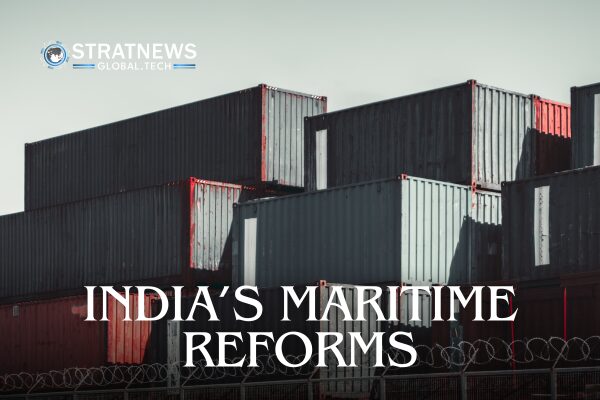In a move that marks a transformative shift in India’s maritime policy framework, Parliament passed two technologically progressive bills on Wednesday, aimed at aligning India’s shipping and maritime governance with international standards. The Merchant Shipping Bill, 2024, and the Carriage of Goods by Sea Bill, 2025, represent the country’s most comprehensive legal overhaul in the maritime sector in over a century.
The two legislations are a first for the Ministry of Ports, Shipping and Waterways (MoPSW) and lay the groundwork for a modern, efficient, and future-ready maritime ecosystem-emphasising digitalisation, automation, and international interoperability in policy and practice.
Merchant Shipping Bill
The Merchant Shipping Bill, 2024, replaces the Merchant Shipping Act of 1958, which failed to implement India’s obligations under key International Maritime Organisation (IMO) conventions.
On the passing of the bill, Sarbananda Sonowal, the Union Minister of MoPSW, said, “The Merchant Shipping Bill, 2025, modernises India’s maritime legal framework by aligning with international conventions, enhancing safety at sea, improving emergency response, and ensuring environmental protection.”
He also added that it reduces compliance burdens, promotes Indian tonnage, and prioritises seafarer welfare and ship safety. The bill aims to make India a globally respected maritime jurisdiction and unlock sustainable growth, investment, and innovation in the sector.
Carriage of Goods by Sea Bill
In the Rajya Sabha, the Carriage of Goods by Sea Bill, 2025, was also passed to repeal the century-old Indian Carriage of Goods by Sea Act of 1925. The bill adopts the Hague-Visby Rules, a globally accepted maritime standard also followed by countries like the United Kingdom.
This legislation is expected to simplify maritime trade laws, reduce litigation risks, and enhance transparency and commercial efficiency in cargo movement by sea. It is a key step in making India’s maritime trade laws future-ready and compatible with international trade agreements, including the Comprehensive Economic and Trade Agreement (CETA) with the UK.
This legislation was passed by the Lok Sabha on March 28 earlier this year. On August 6, it was introduced by Shantanu Thakur, the Union Minister of State for Ports, Shipping & Waterways (MoPSW) in the Rajya Sabha.
Thakur added, “The new legislation is a part of the greater initiative of this government to rid ourselves of all vestiges of colonial mindset and to ensure ease of understanding and ease of doing business through simple and rationalised laws. It reflects a broader philosophy of governance to replace outdated norms with modern standards that serve the interests of a resurgent India.”


